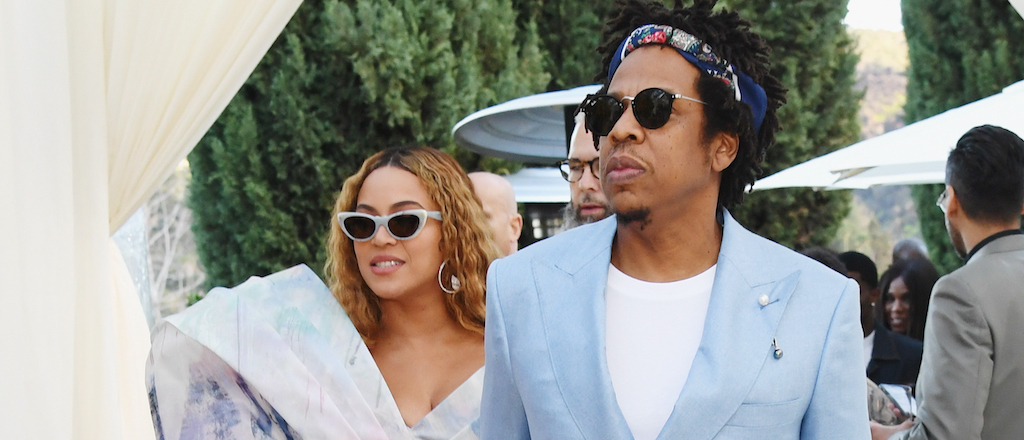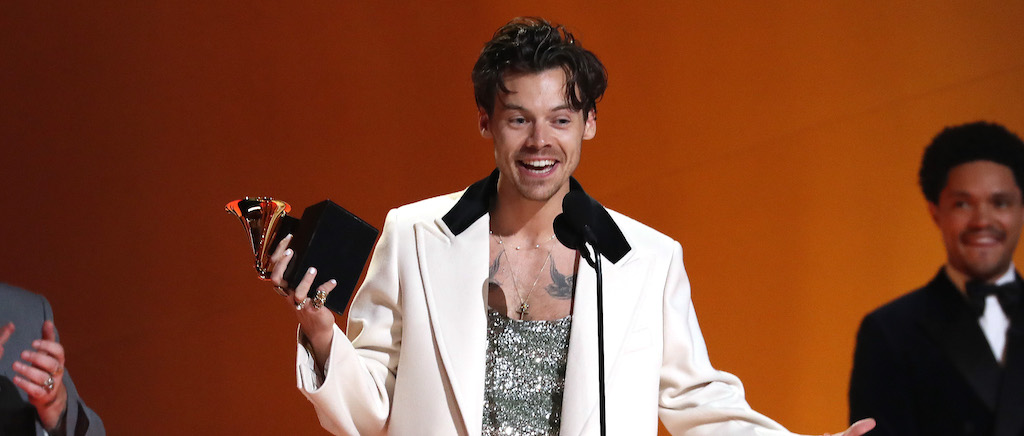Let’s not waste time, here: the Grammys let us all down by failing to acknowledge Beyoncé’s Renaissance as the Album Of The Year, in favor of the audio equivalent of plain oatmeal. I’m sure Harry Styles is a very nice British boy – distinctive lack of personality aside – but I, and indeed, many, many others fail to see what his album accomplished that Beyoncé’s did not.
Where Styles’ album was a fine example of a middle-of-the-road pop album, taking inspiration from the past 40 years or so of Top 40 radio (I’m putting it nicely – others have argued that it was pale imitation), Renaissance excavated 40 years of Black music history. Beyoncé sought to shine a spotlight on an oft-and-long-overlooked subculture of Black joy and rebellion.
And while the Grammys were certainly happy to make a fuss about her setting the record for most-awarded act ever, shutting her out from Album Of The Year – again – felt like a repudiation, a rejection, of not just Beyoncé’s efforts, but of the validity of the lived experience of the people her album highlighted. It’s a slap in the face.
To add insult to injury, these are the people and this is the scene that has most directly influenced pop music over the past 40 years. All of your faves? They got their swag from queer Black folks. If you ask just about any dance-pop star with a Billboard Hot 100 hit who they were inspired by, you’re going to get the same answers: Britney Spears, Madonna. Well, who inspired Madonna? I’ll wait.
Actually, no I won’t. It was that New York rave culture, where queer Black folks pioneered house and techno, ball culture, and the sampling techniques that permeate modern music today. Look at Sam Smith and Kim Petras winning Best Pop Duo/Group Performance last night. That doesn’t happen without the queer Black community opening the door, at the roots of things, laying the foundation for the branches to flourish.
And Beyoncé, who brought that underground movement to the daylight, went out of her way to acknowledge those contributors to the culture. She put Grace Jones on the album. She nodded to the dozens of collaborators and inspirations for that album in both the liner notes and on her website. As my colleague, Alex Gonzalez, pointed out on Twitter, “Both Harry and Beyoncé noticeably took inspiration from LGBTQ+ aesthetics and culture for their respective album eras… but only one of them actually thanked the queer community.”
And musically, she embraced the breadth and range of those contributions, from disco to neo-soul and everything in between. She displayed versatility and depth and grace and vulnerability and gratitude. She, to quote the kids (who are, again, only quoting Black drag queens), ate and left no crumbs.
In the end, she was paid dust.
Harry’s acceptance speech, oddly enough, inadvertently highlighted just how insultingly tone-deaf this pick really was. “This never happens to people like me,” he said. People like who, Harry? British people? Paul McCartney, Sting, and Adele all have several. Guys who were hand-picked and groomed by some of the biggest producers on the planet to be pop stars from their teens? Hey, have you ever heard of Justin Timberlake?
There is literally no category or tag that you could place on Harry Styles that would put him at a disadvantage in today’s society, let alone at an institution like the Recording Academy, which has had a 100-year history of dropping the ball on honoring Black artists, women, queer artists, or people of color in general at best, and outright racism at worst. Harry is, to the best of anyone’s knowledge, a straight, white, rich dude… the people modern society is set up to serve.
You can’t even blame this on the voting process; in a Variety feature about Academy voters, two anonymous members of this “prestigious” group openly admitted they didn’t vote for Beyoncé “because she always wins.” There was true spite behind this robbery, like the heist in Ocean’s Eleven. It wasn’t just about seeing Harry win – it was about seeing Beyoncé, a Black woman whose commitment to excellence in her craft oozes out of every fiber of her being, who has sacrificed so much to be the best at her craft, who shouldered the burden of representing an entire community in her work… lose.
That is truly heinous.
But, it’s also business as usual in America, where we Black folks are told we have to work twice as hard for half as much. If nothing else, last night’s Grammy result adds one more exhibit to the mountainous pile of evidence for this. It’s all just proof that the Grammys, like most everything else, ain’t really for us – and that’s a shame, because America, and its music, owe us so much.


 (@NinaVzqz23)
(@NinaVzqz23) 














































